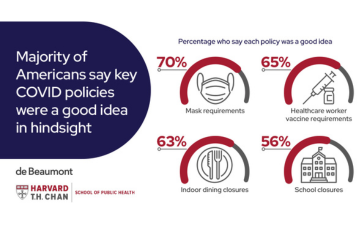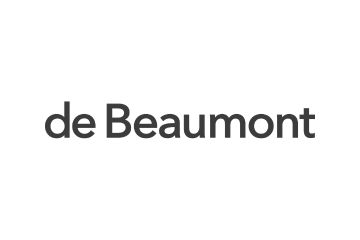This week at the American Public Health Association annual meeting, we introduced public health temporary tattoos at the de Beaumont booth. Attendees enthusiastically “branded” themselves as a Public Health Hero, Champion, or Nerd. (“Nerd” was by far the most popular choice.) At a large meeting with your peers, it feels natural to show pride in your career and talk to others about your work. But what will happen when everyone goes back to their daily jobs?
After working in politics and PR, I’ve noticed something different among people who have chosen to work in public health. While they do good and important work, they are humble about it — sometimes to a fault.
The topics and issues being addressed in public health are some of the most pressing in society today—from measles outbreaks and lead poisoning, to gun violence and food insecurity. Public health professionals work hard to address these and other issues that affect everyone, but they remain largely ignored. Working “behind the scenes” can also affect careers in public health. People in public health are fully aware that their work is often overlooked and underappreciated. For some, it almost seems like a badge of honor to do the right thing but not be valued for their contributions. But if you think public health is underfunded and undervalued now, it will only get worse if the field doesn’t start promoting itself in new and better ways. And that can start at the individual level.
At the de Beaumont Foundation, we created the 40 Under 40 in Public Health initiative to promote inspiring leaders and give them a platform to talk about their work, their accomplishments, and their vision for a healthier world. Many lists recognize leaders in healthcare, but few feature those in public health practice. And leadership programs for public health tend to be focused on top-level executives.
We released our list of 40 Under 40 in May, and in September brought the first class together for a leadership summit in Kansas City, Mo. They learned about adaptive leadership and crucial conversations and discussed “hot topics” like gun violence, institutional racism, climate change, and mental health while sharing their challenges and successes. In one session, I talked to them about the importance of personal branding. Their passion, experiences, and aspirations can inspire and shape the entire field of public health, I said — but only if they find ways to share their stories. (See “Better Storytelling for the Public Health Workforce,” by Soledad O’Brien.)
Your passion, experiences, and aspirations can inspire and shape the entire field of public health — but only if you find ways to share your stories.
You can see my presentation here. Following is a short summary.
What Is a Brand?

Why Your Brand Matters
Thinking about your brand and taking practical steps to shape it is not about self-promotion. Developing a strong and intentional brand will help you advance your goals and your mission. If you’re not comfortable with the idea of promoting yourself, keep in mind that you’re actually moving ideas — and you’re the vehicle for that. Instead of calling it self-promotion, think of it as health promotion.
A strong and positive brand will make you more effective at the things you care about — not just career growth, but your causes and passions. Your personal brand can also add value to your organization by:
- Increasing visibility
- Building organizational capacity
- Increasing engagement
- Expanding influence
- Creating a human connection to the organization
- Making the work you do relatable and real
A strong and positive brand will make you more effective at the things you care about.
Getting Started
If you haven’t thought about your personal brand, one way to get started is to identify your core beliefs and values. Ask yourself:
- What are your goals?
- What do you most value?
- What are you passionate about?
- What motivates you?
- What makes you remarkable?
In our session, I talked about the process we went through to refresh the de Beaumont Foundation’s brand. Over several months, we developed a vision, mission statement, tagline, and logo, but it started by stepping back and asking questions like: “What impact are we trying to make?” and “What’s the organization’s personality?” We engaged our staff and board members in identifying words that describe us — either today’s reality or what we aspire to be. We came up with words like practical, results-driven, passionate, collaborative, and forward-looking, and they helped shape our messaging and even our graphic identity.
What are your personality words? You can use this worksheet to identify your values.
Keys to Success
We can learn a lot from companies and celebrities who have promoted their brands successfully — and those who haven’t. Whether you’re communicating online or in-person, follow these simple guidelines:
- Be authentic — if you’re fake or insincere, people will know it.
- Make real connections — social media is great, but one of the best uses of it is to connect with people in a real way, including getting together at in-person events or talking by phone.
- Have a plan — create a strategy, get started, and see how it’s working. Then refine your plan and keep at it.
- Be consistent — it’s impossible to successfully and authentically maintain multiple brands or personalities. Be true to yourself, whether you’re thinking about your personal or professional brand.
Your Brand Online
Technology provides many opportunities for branding, education, and advocacy that didn’t exist when I was “under 40.” In fact, I was 40 when Mark Zuckerberg launched “TheFacebook” and 42 when Jack Dorsey sent the first-ever tweet. I remember when selecting the right “resume paper” was an important decision. So I’m a big advocate of using technology to build your brand and shape your career. Surprisingly, while most of our 40 Under 40 are on LinkedIn, just over half of them use Twitter. When I asked them why, I heard reasons like:
- Restrictions in their organization (especially for government employees)
- “Not enough time”
- Privacy concerns — or just not wanting to be “out there” in a public way
For public health organizations and advocates who are averse to using social media, consider this: Tobacco companies are using it. So are pharmaceutical companies, the food and soda lobbies, and anti-vaxxers. You can either be part of the online discussion or let others shape the narrative about health. If you want the communities you serve to care about what you do, let your employees be ambassadors. Tony Hsieh, CEO of Zappos, says his company’s social media policy is simple: “Be yourself and use your best judgment.” Your organization will probably want to be more specific, but if managers can’t trust their employees to be responsible in promoting their work, they’ve got bigger problems.
I also asked the group how many of them have a Google search for their own name. No hands. You can’t know what everyone’s saying about you everywhere, but why wouldn’t you want to know when you’re mentioned online? I encouraged them to do three simple things:
- Google your name to see what shows up. What would a potential employer see? What would you want them to see?
- Create a Google alert for your name. There’s no need to search for yourself every day — just set an alert and let the notifications come to you.
- Set notifications for your social media channels. It’s a good idea to (quickly) know when someone has mentioned you or tagged you.
Opportunities to Shape Your Brand
There are many ways to build your brand and advance your mission, including:
- Speaking
- Writing
- Blogs
- Podcasts
- Media
- Professional organizations
- Award programs
- Volunteering
- Social media
Branding doesn’t have to be a second job. Be efficient and connect the dots. If you give a presentation, turn it into a blog post or LinkedIn post. The post can then become a series of social media posts on other channels — a Facebook post, a tweet, a photo on Instagram. You can share your views without creating and marketing your own blog. Take advantage of public websites like Medium, and write original posts for LinkedIn.
Don’t be shy. If you’re still reluctant because you think of branding as self-promotion, think of it as promoting your values and being true to yourself. Now get out there and do it.
See “Personal Branding: Advancing Your Career, Your Organization, and Public Health” on slideshare.net.





